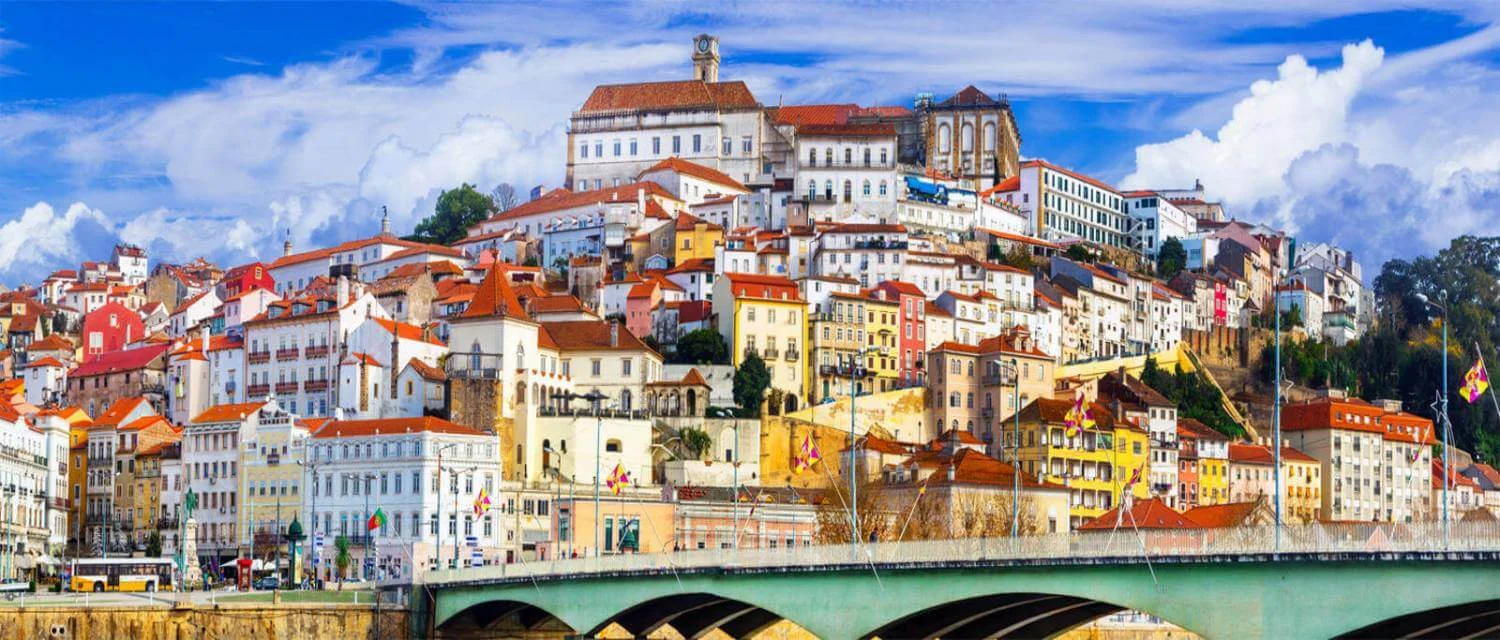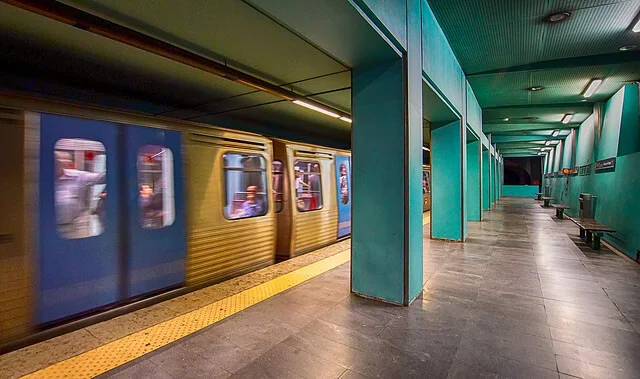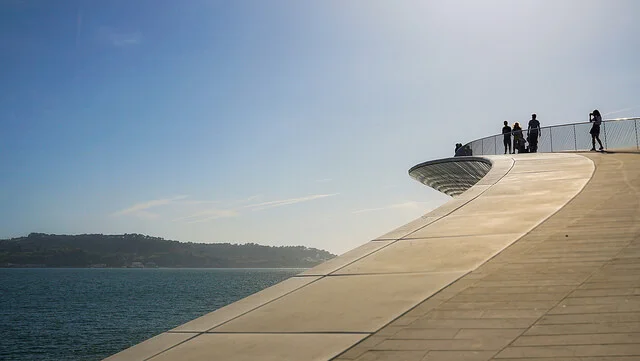Making the decision to live in Portugal is the result of many factors, personal and professional, but also the result of a long process paved with questions and doubts. Moving to Portugal does not happen overnight, and the preparations and procedures are numerous but necessary. Whether you have already made the decision to live in Portugal in retirement, to work there, without speaking Portuguese or to buy a house, the information to prepare your expatriation must be precise and clear. Each project and each adventure is unique and it would be difficult to tell you exactly how your expatriation will be. Our ultimate advice is to prepare well because it is the key to a successful expatriation. Where to live in Portugal ? How to live in Portugal with 1000 euros ? How to live in Portugal ? Is it possible to go to work in Portugal without speaking Portuguese ? How is renting or rent prices, and how to buy a house in Portugal? For all these questions LisBob, the expats assistant, tells you everything you need to know to live in Portugal in 2020.
Summary:
- Where to go to live in Portugal
- Live in Portugal with 1000 euros
- Living in Portugal in retirement
- Living in Portugal without speaking Portuguese
- Living in Portugal: renting and rent prices
- Buy a house in Portugal
- Advantages and disadvantages of living in Portugal
Living in Portugal : all you need to know to expatriate and move to Portugal in 2020
Where to go to live in Portugal
If you have never visited Portugal, then let us advise you to go and book a plane or train ticket to see and experience life in Portugal yourself. The choice of the Portuguese region in which one decides to live is important, and Portugal is a country that offers many different regions and cities that offer striking contrasts. LisBob has tried to bring together most of what you need to know to live in every region of Portugal. Of course, everyone must make their own opinion by coming but there are some trends between each region. It is up to you to discover and taste each region and, depending on your project, choose the one that suits you best.
Living in Lisbon will be exciting
Living in Lisbon
Lisbon is the capital of Portugal, and has become in a short time a fashionable city. It must be said that it does not lack charm and assets and it attracts more and more tourists but also expatriates who decide to come and live there. Alfama, Baixa Chiado, Rossio, as many neighborhoods of Lisbon as stories and different atmospheres. Living in Lisbon is being carried away by the joy that floats in the streets, with an apotheosis in June with the celebrations of the Saint Anthony.
The city, which is full of cultural and festive activities, also attracts a population of digital nomads, who can enjoy the hills and Lisbon and the altered San Francisco. To live in Lisbon, you do not have to worry too much about noise or rent prices, like any European capital today.
Living in Portugal is something fantastic
Living in Porto
Porto is the second largest city in Portugal. The weather is less sunny than the south of Portugal but people are not less warm. On a human scale, the city has been experiencing a significant boom in tourism for several years thanks to its international airport. Its proximity to the coast makes it an ideal place for all those who wish to benefit from the amenities of a big city with the proximity of wide open spaces.
Porto is a city with a world-famous cultural heritage that has inspired many artists and writers. The city Invicta (invincible) was never destroyed or defeated, and even withstood the onslaught of Napoleonic troops.
Algarve is one of the best place to live in Portugal
Living in the Algarve
The Algarve is the southern region of Portugal. Known for its less humid weather and warmer waters than the rest of the country, the Algarve is the sunny region par excellence. There is already a fairly developed expatriate population, especially British. Temperatures can easily rise to 40 degrees during the summer but the proximity to the Atlantic Ocean can withstand. Inland, temperatures can still climb and people sensitive to heat should avoid these areas.
From Sines to Sagres, through Portimão, Alvor, Loulé or Faro, the Algarve is full of breathtaking natural landscapes. The western parts, less rocky, has beautiful nature reserves.
Coimbra is a city where more and more expats decide to go to live
Living in the Center region
More and more expatriates are choosing to live in the central region of Portugal. Accessible prices, the proximity of medium-sized cities and airports, and nature at your fingertips are the assets of this central region. Leiria, Coimbra, Tomar, Viseu, Santarem: all these cities benefit from activities and health equipment necessary to live well there.
It is not uncommon to find real estate at half the price per square meter compared to Lisbon or Porto, and the central region of Portugal enjoys proximity to the ocean and the mountains with the Serra da Estrella. This calm region is sought after by retirees.
Is it possible to live in Portugal with 1000 euros ?
Live in Portugal with 1000 euros
Yes, the title of the paragraph may seem high, but it is a question we are often asked. Many expats make the decision to live and work in Portugal for large companies but for first-level positions. Working for a call center has become an opportunity to come to work in Lisbon and elsewhere for thousands of expats. The average salary is around 1000 euros a month, with more or less interesting benefits depending on the job and the company. We will not go into the debate today about whether the amount is sufficient, but to give an account of what it is possible to do when living in Portugal with 1000 euros.
Housing: 350 €
A shared room is 350 euros on average in Lisbon, and a little less in Porto. There are of course good and bad, and we must pay attention to nasty surprises on the rental. Of course for a studio do not expect anything below 600 euros in Lisbon. An alternative for lower prices is to go out of the big cities.
Transport: 50 €
Lisbon and Porto have a metro and rail network. A monthly pass for each of these cities costs on average 35 €. Add 15 € from Uber to return from the evening and you arrive at a budget of 50 € monthly for transport.
Food: 150 €
The cost of living in Portugal is lower than in France or UK for example, and food is no exception to the rule. Count less than 150 € per person per month for shopping in Portugal.
Outings & Restaurants: 150 €
We go out a lot in Portugal, whether for breakfast or late weekends, the Portuguese like to be outside. Maybe because it's cold in their homes? With restaurants under 10 € and beer at 1 €, estimate your budget outings for 100 €.
Shopping: 100 €
Portugal, like Spain, has the advantage of taking advantage of reduced prices for clothing. Zara, H & M and others offer lower prices than in other European countries and you can enjoy cheap shopping on the streets of Lisbon or elsewhere. Shopping budget of 100 € per month.
Phone: 50 €
This is one of the black spots in Portugal with packages and telephone subscriptions that do not offer much internet and with a clampdown from the limit reached. The packages for less than 25 years are still advantageous, but it will take 30 € per month if you want a correct package. The price of the phone is not included so we advise you to come with the one you already have. Otherwise count 50 € in total per month.
Leisure: 150 €
Lisbon is a city full of activities. Travel, excursions, visits, you will not miss places to visit, whether in the Portuguese capital or throughout Portugal. Count 150 € per month.
Total: € 1,000
As you can see, living in Portugal with a thousand euros depends on everyone and their preferred spending positions. Some may prefer summer outings to the edge of the Tagus, or others prefer to take a larger room to be better installed. Living in Portugal with 1000 euros is possible but requires some financial gymnastics.
If you would like to go deeper into the subject and try the Portuguese adventure, you can read our guide "LisBob: work in Portugal", available on our library.
Retiring in Portugal
Going to live and retire in Portugal is a dream that many retirees make the decision to live each year. The promise of 300 days of sunshine a year, a lower cost of living than in other countries, a well-known health system and a sense of security are some of the reasons why many retirees leave for Portugal.
More an more expats decide to retire in Portugal
NHR Non-Habitual Resident Status in Portugal for pensioners
Another reason why many retirees take the step and leave to live in Portugal is tax. Since 2013, Portugal has been offering a tax regime dedicated to retirees making the decision to expatriate: the NHR status: non-habitual resident. The word is a false friend because nothing prevents you from living there full-time: on the contrary. You have however the obligation to justify of 183 days of residence per year in Portugal in order to benefit from this status.
This NHR tax regime is reserved for pensioners benefiting from pensions in the private sector. Unfortunately for the officials they can not enjoy this status. Once granted, the NHR status allows for a full income tax exemption for a period of 10 years. Yes, 0% tax on your pensions for a decade. To benefit from it, here are the two criteria to respect:
- Benefit from a pension from the private sector
- Not having been a tax resident in Portugal for the 5 years preceding the application
This NHR status is not a total exemption from any taxes in Portugal. Indeed if you have a property or a car, then you will be liable for property taxes and taxes on the car.
Retiring in Lisbon can be a good option
Steps to retire in Portugal
To go to live in Portugal for the retirement can seem to complicate but with a good preparation, things happen in a serene way. The more you go in your project and more questions will come.
- How to register my car in Portugal ?
- What are the steps to emigrate ?
- How to benefit from health care in Portugal as an expatriate ?
- How to prepare for your move ?
All these questions, we answer in the different articles of our blog or in the different chapters of our books. We reassure you, they are natural and legitimate: better to be too prepared than not enough!
Our guide "Retiring in Portugal as an NHR" will be your ideal companion to prepare for this fabulous adventure that is expatriation.
Living in Portugal without speaking Portuguese
One of the legitimate apprehensions when one thinks of possibly going to live in Portugal is the fact of not mastering Portuguese. Going to a new country without speaking your language is a challenge that some people do not dare to overcome. Portuguese, apart from Portuguese-speaking families and communities around the world, is a foreign language that is often found behind English and Spanish in the order of student preferences. Living in Portugal without speaking Portuguese is not difficult in itself, you still have to hang on. If this can reassure you, even after several years you will have trouble understanding Portuguese Portuguese.
First idea to forget: Brazilian Portuguese is the same as Portuguese Portuguese. That is wrong is if you ever speak Brazilian expect to have to adapt your pronunciation and vocabulary. Another idea, Portuguese is in the end very different in spoken than Spanish. Do not make the disparagement of speaking Spanish to a Portuguese, he might take it badly. In writing, Portuguese is easier and easier to understand. Indeed, Portuguese is a Latin language and many words and verbs are similar to other languages.
In the end, living in Portugal without speaking Portuguese is a stimulating challenge, which you will be proud to have noted. It is not insurmountable, others are done before you but the satisfaction of talking like a local is priceless.
Living in Portugal: rental and rent prices
One of the most common topics when thinking about living in Portugal is the price of rent and how the rental works. It is indeed an interesting subject and unleashes the passions, especially in large cities like Lisbon. The explosion of the seasonal rental market in the historic districts like Alfama or Mouraria have caused whole areas to be dragged into the Airbn'b madness, with sometimes more than a third of the dwellings dedicated to this platform.
Price of a shared room in Lisbon or Porto
One way to reduce your housing budget when you have just arrived in Lisbon is to opt for collocation. The favorite sites for finding a roommate in Lisbon or Porto are Idealista, Custo Justo, Spotahome or Uniplaces. For a good room and not far from transport it will take 300-350 euros. Prices can climb easily if you are hyper center or in an apartment that has just been renovated. Be careful to sign a contract with the owner and ask to receive invoices. Our advice: if it's fishy, do not go! Many have had to leave their room overnight or have been fired before the end of their contract, because there was simply no !
Price of a studio for rent in Lisbon or Porto
Regarding the studios, the situation is worrying for people with low incomes and living in big cities. In Lisbon or Porto, a studio of 40 square meters is around 800 euros, charges not included! Single people therefore turn more to collocations.
The long-term rental law has recently been amended to better protect tenants. Now the minimum lease is one year.
Buy a house in Portugal
Some people come to Portugal to buy a house or real estate, It must be said that the price of the real estate market is very competitive. Even if some areas of downtown Lisbon or Porto have become very expensive, Portugal still offers many opportunities, whether to invest or to reside there.
Buying a house in Portugal is a faster exercise than in other countries like other countries, but requires special attention and preparation. Indeed, it will not be difficult to find the ideal good, but it will be necessary to decide quickly!
The support of a notary or a lawyer and of course more than advised, and you will have to supervise the steps to avoid unpleasant surprises. In Portugal when you buy a house or a property or a house you have to pay attention to several points:
- Ensure that the house has all the local and national authorisations required ;
- Ensure that the property is properly registered, and nothing has been left out ;
- Ensure that no mortgage or debt is backed by the property.
This last point is very important because a good deal can hide someone who is trying to get rid of a mortgage or debt. You risk in the case of seeing the property simply seized, and you will not be able to do anything about it. Once again, good preparation is key in any expatriation or purchase of real estate. There are many francophone professionals who can help you. Do not hesitate to contact us for more information.
The complete process of buying and selling houses or properties in Portugal is explained in our guides : discover our library dedicated to expatriation.
Pros and Cons of living in Portugal
To be honest, LisBob can not make believe that Portugal is an Eldorado or a hidden paradise for everyone. Like every country, Portugal has advantages and undeniable advantages, but sometimes hide the disadvantages that can sometimes become a brake on expatriation. Once again, good preparation is the key to living in Portugal in a serene way. LisBob has gathered for you the main advantages and disadvantages to live in Portugal.
Pros of living in Portugal
Weather: it should not be denied, Portugal has a softer climate as a whole than Northern Europe. However, some mistakenly believe that Portugal is a country with a Mediterranean climate. Indeed, Portugal borders the Atlantic Ocean and receives first-line storms and rains forming off the coast. In summer, Portugal has a generally warm and dry climate, and the thermometer can easily climb to 40 degrees in some areas.
Weather is one of the best criteria to move to Portugal
Cost of living: Portugal, as a whole, enjoys a lower cost of living than in UK or other European countries. A coffee is paid 50 cents and a beer € 1, and it is not uncommon to find a menu in a tasca (brewery) for € 6. Of course, tourist places will have higher prices and the development of tourism is that some restaurants and bars are priced worthy of major European capitals. Food is less expensive, unlike technological goods such as cell phones or computers. Indeed, VAT is 23% in Portugal and some goods are more expensive than in France, Spain or UK.
Security: Portugal is often well ranked when it comes to feeling and level of security. Yes, to speak of insecurity would be almost incongruous concerning Portugal as the level of aggression is low. Even if it is not Japan, Portugal is a country of pacific tradition and it is rare to be attacked in the street.
If you like to go out, Lisbon will be on your top list
Taxation: Whether you are retired from private or freelance, Portugal's tax system can be advantageous in many ways. In fact, non-habitual resident RNH status allows either a fixed 20% income tax rate, or a total exemption on private sector pensions, all for a period of time. 10 years old.
Cons of living in Portugal
Taxation: It may seem paradoxical because Portuguese taxation was previously mentioned as an advantage to go live there. However, people who do not have NHR status may be subject to one of the highest taxes in Europe. For a country whose minimum income is 600 euros gross per month for 2020, this tax is reflected in a VAT at 23%, a gasoline at the same price as in other countries and a social security rate of 22% for freelancers, among others.
Distance: We agree, Portugal is not Peru or Antarctica. It remains Europe and a few hours from Central Europe. Nevertheless, Portugal is "at the end" of the European continent and it penalizes it on several levels. Portuguese energy is one of the most expensive in Europe because poorly connected, the distance makes deliveries more expensive and products less varied.
Housing: Beyond the rise in rents observed for several years, especially in Lisbon and Porto, we must note the poor overall quality of Portuguese housing. Indeed, Portugal is very misclassified when it comes to the insulation and heating of its homes. It takes cold in Portuguese homes, and the bill for electricity and gas can easily climb, especially in winter.
Administrative paperwork : Yes, the steps and administrative formalities are very complicated and long in Portugal. Whether you have the RNH status or the registration of your car, there are many steps to take when you decide to live in Portugal. Lisbob can of course accompany you in all the processes.
LisBob hopes to have given you a glimpse of what life is like in Portugal, and although the decision is yours, we can only invite you to check it yourself. The best way to know if you are made to live in Portugal is simply to come here, to try, to make mistakes as many expatriates have already done before but that did not stop them from appreciating the life in Portugal.
We think we have enough to repeat in this article, good preparation is the key to a successful expatriation. Feel free to subscribe to the newsletter, the Facebook page or to come and talk to us directly, the LisBob team will be happy to help you in this adventure that is to live in Portugal.

































